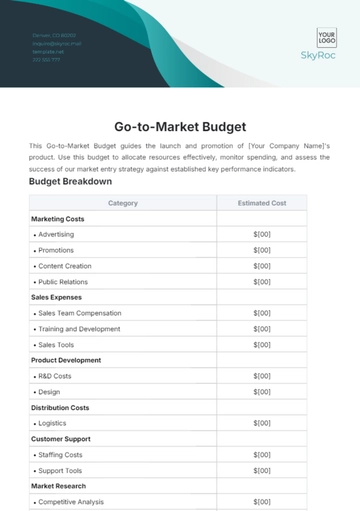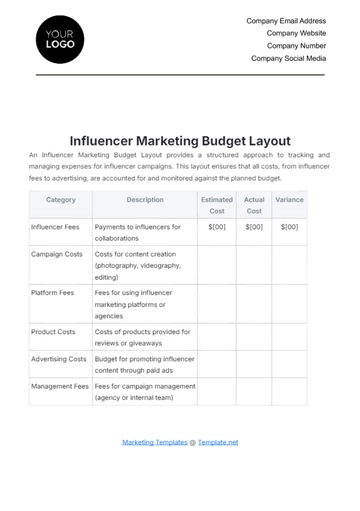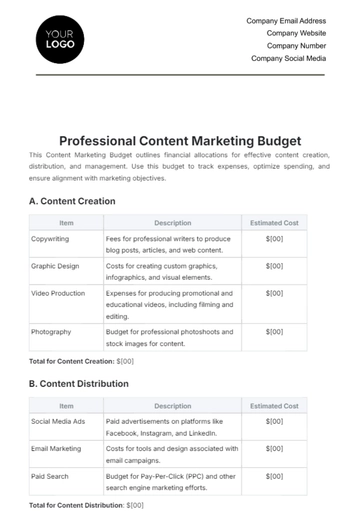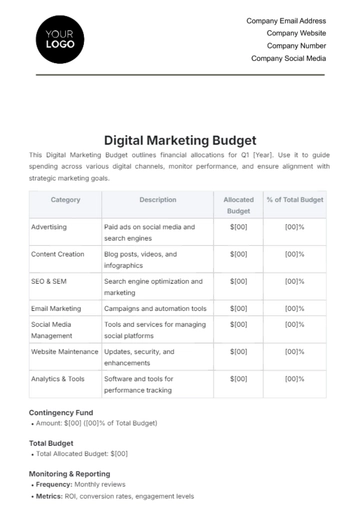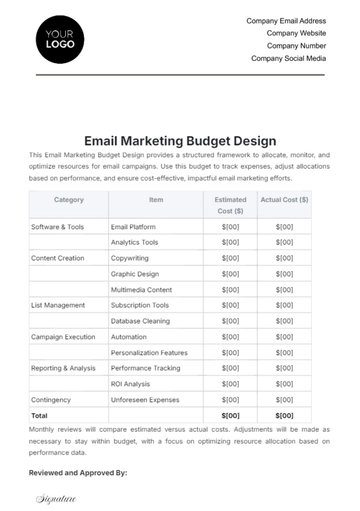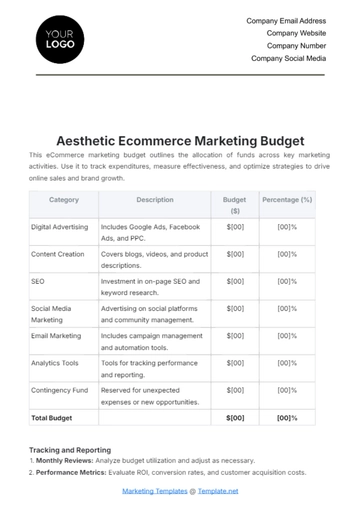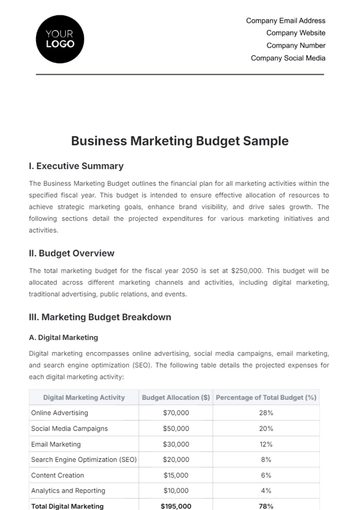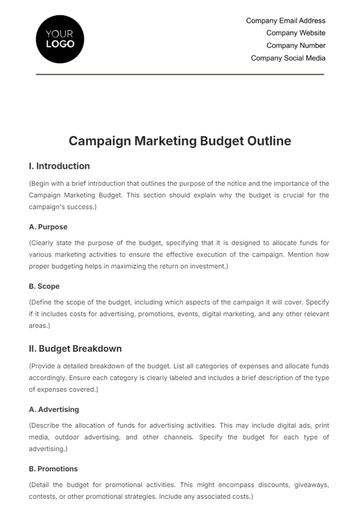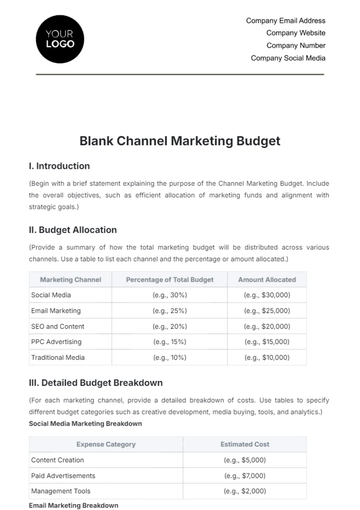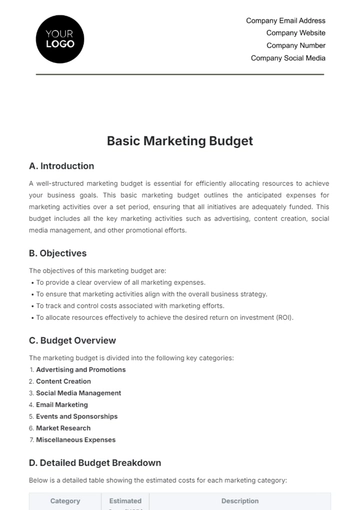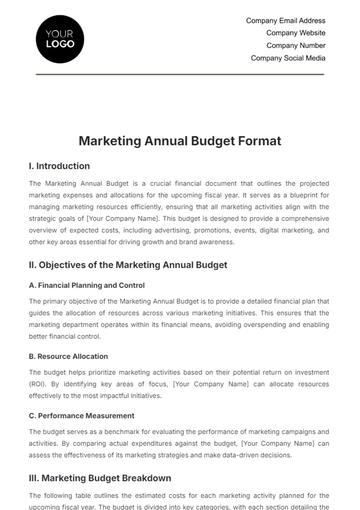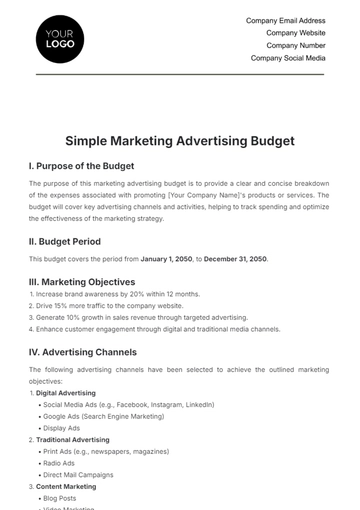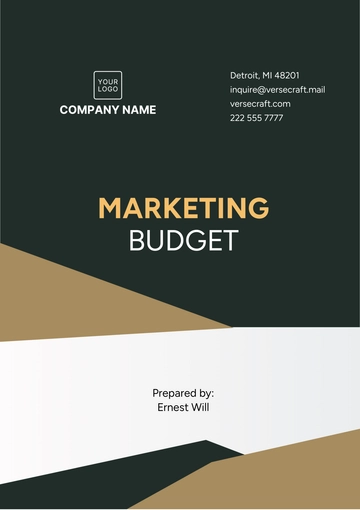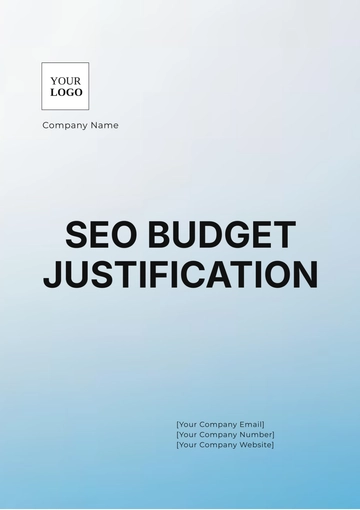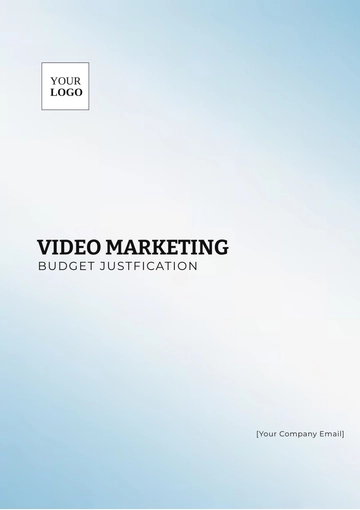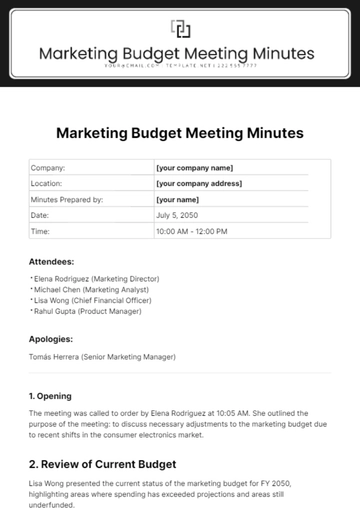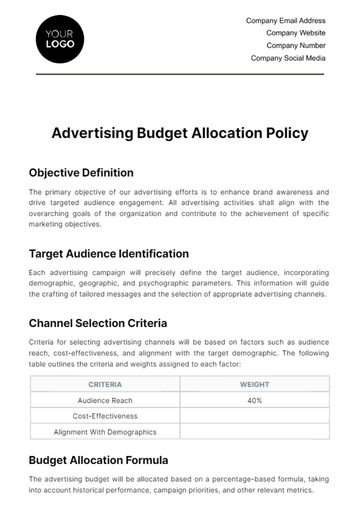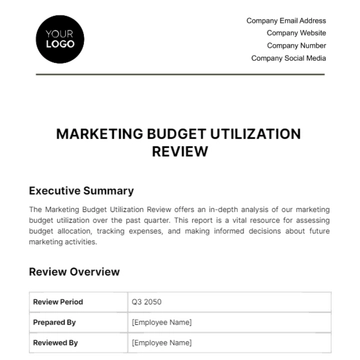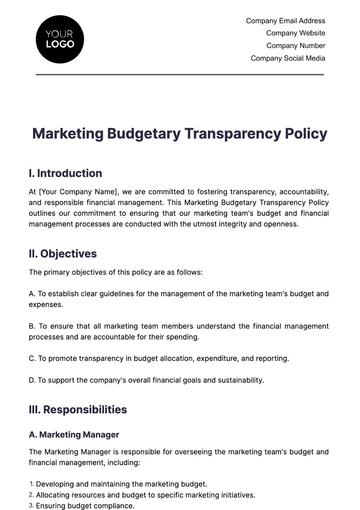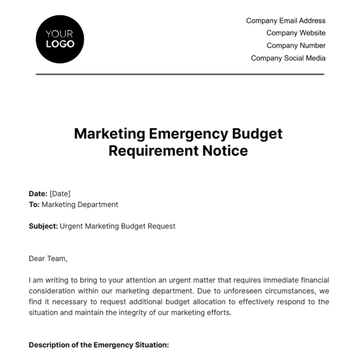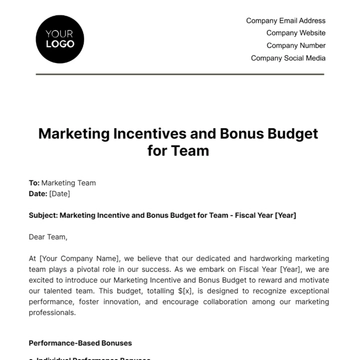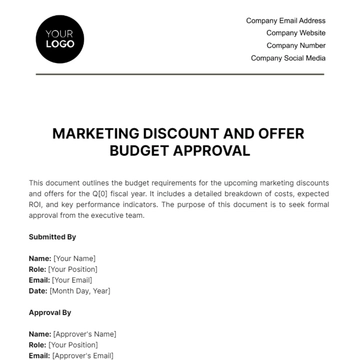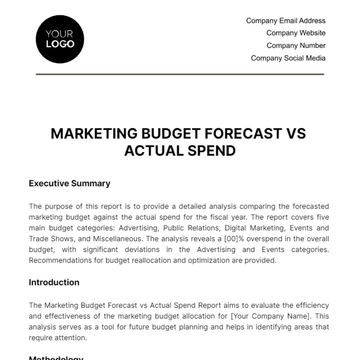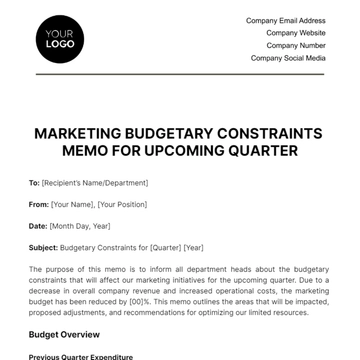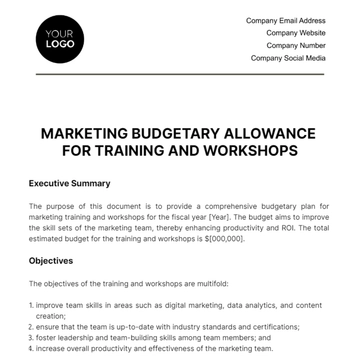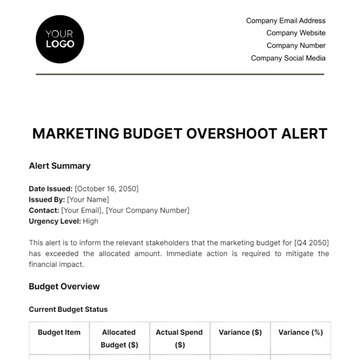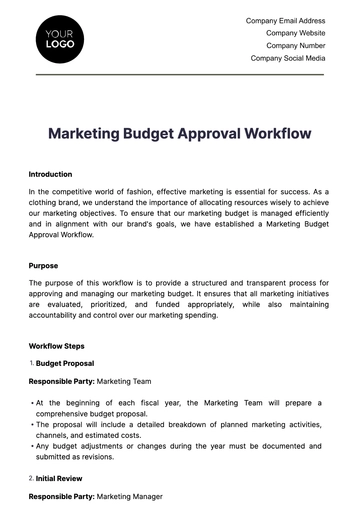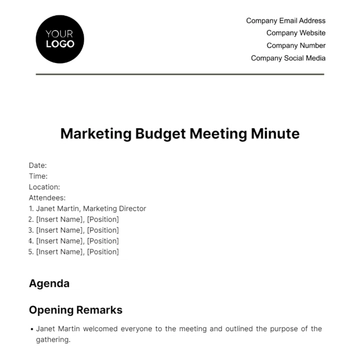Free Basic Marketing Budget
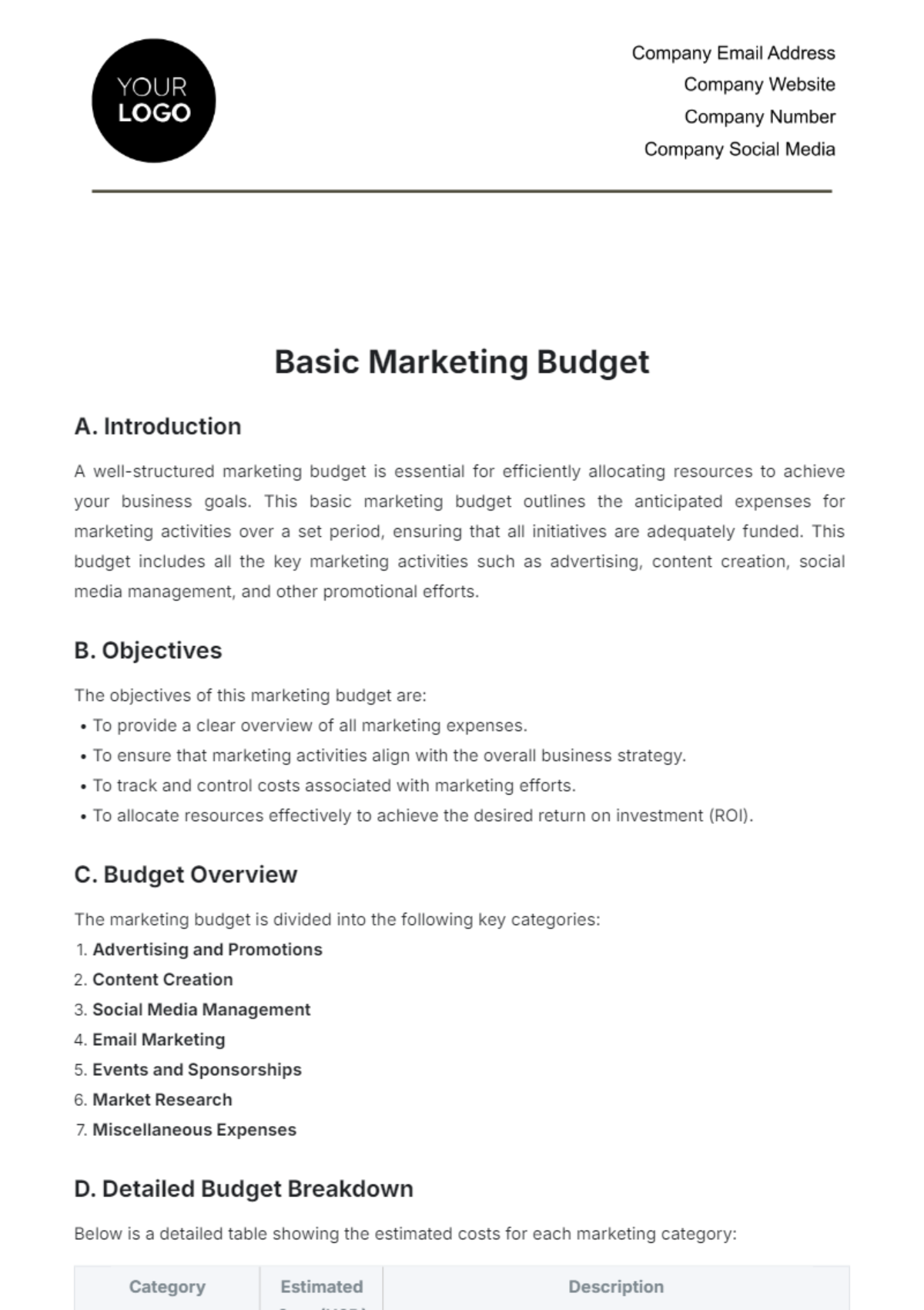
A. Introduction
A well-structured marketing budget is essential for efficiently allocating resources to achieve your business goals. This basic marketing budget outlines the anticipated expenses for marketing activities over a set period, ensuring that all initiatives are adequately funded. This budget includes all the key marketing activities such as advertising, content creation, social media management, and other promotional efforts.
B. Objectives
The objectives of this marketing budget are:
To provide a clear overview of all marketing expenses.
To ensure that marketing activities align with the overall business strategy.
To track and control costs associated with marketing efforts.
To allocate resources effectively to achieve the desired return on investment (ROI).
C. Budget Overview
The marketing budget is divided into the following key categories:
Advertising and Promotions
Content Creation
Social Media Management
Email Marketing
Events and Sponsorships
Market Research
Miscellaneous Expenses
D. Detailed Budget Breakdown
Below is a detailed table showing the estimated costs for each marketing category:
Category | Estimated Cost (USD) | Description |
|---|---|---|
1. Advertising and Promotions | $10,000 | Includes online ads, print media, and pay-per-click campaigns. |
2. Content Creation | $5,000 | Costs for creating blog posts, videos, infographics, and other marketing materials. |
3. Social Media Management | $3,500 | Tools, software, and resources for managing social media platforms and engaging with audiences. |
4. Email Marketing | $2,000 | Subscription costs for email marketing platforms, plus design and content creation. |
5. Events and Sponsorships | $7,500 | Expenses related to attending, hosting, or sponsoring industry events and conferences. |
6. Market Research | $2,500 | Surveys, focus groups, and data analysis to understand market trends and customer preferences. |
7. Miscellaneous Expenses | $1,500 | Unforeseen expenses or additional costs not covered in the above categories. |
Total | $32,000 |
E. Allocation Strategy
Allocating the marketing budget strategically is crucial to maximize ROI. The largest portion of the budget is dedicated to advertising and promotions, given its direct impact on brand visibility and lead generation. Content creation is also a significant focus, as it supports inbound marketing strategies and enhances SEO efforts. Social media management, email marketing, and events play supporting roles in engaging with the target audience and nurturing leads. Market research ensures that the strategies remain aligned with customer needs and market conditions.
F. Monitoring and Adjustment
The budget should be monitored regularly to track the actual spending versus the planned budget. Any discrepancies should be addressed promptly to prevent overspending. Adjustments may be necessary based on performance metrics, shifting priorities, or unforeseen opportunities that arise during the budget period.
- 100% Customizable, free editor
- Access 1 Million+ Templates, photo’s & graphics
- Download or share as a template
- Click and replace photos, graphics, text, backgrounds
- Resize, crop, AI write & more
- Access advanced editor
Keep track of your marketing expenses with the Basic Marketing Budget Template on Template.net. This editable and straightforward template provides a clear format for budgeting your marketing activities. Utilize our Ai Editor Tool to customize the budget, ensuring you effectively manage your marketing costs and stay within financial limits.
You may also like
- Budget Sheet
- Personal Budget
- Non Profit Budget
- Monthly Budget
- Project Budget
- HR Budget
- Company Budget
- Home Budget
- Weekly Budget
- College Budget
- Business Budget
- Construction Budget
- Small Business Budget
- Hotel Budget
- Annual Budget
- Home Renovation Budget
- Household Budget
- Student Budget
- Grocery Budget
- Marketing Budget
- Corporate Budget
- Startup Budget
- Manufacturing Budget
- Church Budget
- University Budget
- Annual Budget Plan
- Event Budget
- Operating Budget
- Travel Budget
- Food Budget
- IT and Software Budget
- School Budget
- Real Estate Budget
- Sales Budget
- Conference Budget
- Budget Finance
- Freelancer Budget
- Budget Advertising


